
Feature Photo: ChrisJamesRyanPhotography / Shutterstock.com
Born from a dare in a Quincy barbershop basement, the Dropkick Murphys transformed from three-week preparation band into one of America’s most recognizable Celtic punk acts. The band was formed in 1996 in Quincy, Massachusetts and has evolved through multiple lineup changes while maintaining their signature blend of Irish traditional music and punk rock energy. They were initially signed to independent punk record label Hellcat Records; they released five albums for the label and built a reputation around New England and the East coast through persistent touring. With twelve studio albums released to date, the band has sold millions of records worldwide and achieved mainstream success, particularly with their platinum single “I’m Shipping Up to Boston.” Casey has been the band’s only constant member since the band formed, serving as the anchor through decades of personnel changes.
The band’s history spans nearly three decades of lineup evolution, beginning as a quartet and expanding to as many as eight members during their peak period. The current lineup consists of co-lead vocalist and bassist Ken Casey, drummer Matt Kelly, co-lead vocalist Al Barr (on hiatus from the band since 2022), rhythm and lead guitarist James Lynch, lead guitarist and multi-instrumentalist Tim Brennan, multi-instrumentalist and rhythm guitarist Jeff DaRosa and bassist Kevin Rheault. Their journey includes notable departures, including founding members leaving to pursue other dreams, personality conflicts, and natural musical evolution that has seen over a dozen musicians contribute to the band’s legacy.
Chart success came gradually for the Dropkick Murphys, with their breakthrough occurring during the 2000s. Their album “The Warrior’s Code” reached significant commercial success, largely due to “I’m Shipping Up to Boston” being featured in Martin Scorsese’s Academy Award-winning film “The Departed.” The album debuted at number 6 on the Billboard 200 – the highest position ever for a Dropkick Murphys album–and sold 43,259 copies in the U.S. in its first week. The band has received various accolades including recognition for their charitable work through the Claddagh Fund and their unwavering support for union labor, making all their merchandise in America with union labor.
Ken Casey
Kenneth William Casey Jr. stands as the sole remaining founding member and driving force behind the Dropkick Murphys’ remarkable journey from basement band to international Celtic punk icons. Casey was one of the original members, starting the band in 1996 with guitarist Rick Barton and singer Mike McColgan. Born April 15, 1969, Casey’s path to music was unconventional – he had never played an instrument before accepting the dare that led to the band’s formation. I was working in the laborers’ union and bartending at night, and a kid that I bartended with dared me to open for his band on three weeks notice; I’d never played music, just put a band together just for a laugh. This humble beginning would evolve into a career spanning multiple decades as the band’s primary songwriter, bassist, and co-lead vocalist.
Casey’s contributions to every Dropkick Murphys album have been substantial, serving as the band’s musical and business compass. He has appeared on all twelve studio albums from “Do or Die” (1998) through “Okemah Rising” (2023), initially as bassist and backing vocalist before transitioning to co-lead vocals alongside Al Barr. Following a workplace injury, Kevin Rheault, the band’s longtime stage tech and who filled in for other band members in the past, filled in on bass at the band’s live shows and has since become the band’s official bassist. Casey’s business acumen proved crucial to the band’s success, understanding merchandising and touring economics from early in their career. His working-class background, heavily influenced by his grandfather John Kelly, a teamster and union worker, shaped much of the band’s pro-labor stance and authentic blue-collar messaging that resonates in songs like “Boys on the Docks.”
Beyond music, Casey has established himself as a successful entrepreneur and philanthropist. Casey also founded the charity group The Claddagh Fund, owns two Boston restaurants, McGreevy’s (which closed in August 2020) and Yellow Door Taqueria, and runs his own boxing promotion called Murphys Boxing. In 2009, Ken Casey founded the charity organization, the Claddagh Fund which supports community-based non-profits with a focus on children and veterans organizations and programs that support alcohol and drug rehabilitation in cities across the country and around the world. His commitment to sobriety, having been sober for over 25 years, and his dedication to giving back to his community through various charitable initiatives reflect the values that have kept the band grounded despite their success. Casey has also ventured into film, appearing in the 2016 movie “Patriots Day” about the Boston Marathon bombing, demonstrating his continued connection to his hometown’s major events and his willingness to contribute to Boston’s cultural narrative.
Al Barr
Alexander Barr brought seasoned punk rock credentials and powerful vocals to the Dropkick Murphys when he joined in 1998, replacing founding vocalist Mike McColgan. He was also a founder and lead singer for The Bruisers, which he helped form in 1988 in Portsmouth, New Hampshire. Born January 21, 1968, in Hanover, New Hampshire, Barr’s musical journey began with his first band D.V.A. (Direct Vole Assault) around 1984, followed by 5 Balls of Power, before founding The Bruisers. The Bruisers had played many shows with Boston’s Dropkick Murphys, and when lead singer Mike McColgan quit the band in 1998 they asked Barr to be the new lead singer. Initially, Barr had mixed feelings about the Dropkick Murphys’ rapid rise, as they were taking gigs that previously would have gone to The Bruisers.
Barr’s integration into the Dropkick Murphys proved seamless and transformative for the band’s sound. The first album the Dropkick Murphys released with Barr as singer was 1999’s The Gang’s All Here. His powerful, gravelly voice became the defining sound of the band’s most successful period, appearing on nine studio albums including breakthrough releases like “Sing Loud, Sing Proud” and “The Warrior’s Code.” Barr’s contributions extended beyond vocals – he brought street credibility and punk rock authenticity that helped bridge the gap between the band’s Irish traditional influences and their punk rock foundation. His collaborative approach with Ken Casey created a dynamic dual-vocal attack that became the band’s signature sound throughout their most commercially successful years.
The Bruisers legacy remained important to Barr throughout his Dropkick Murphys tenure. The Bruisers were a punk band that pioneered the American streetpunk/oi! movement, formed in Portsmouth, New Hampshire in 1988. This background in the Oi! scene brought additional depth to the Dropkick Murphys’ sound and helped them connect with both traditional punk audiences and Celtic music enthusiasts. In February 2022 it was announced that Barr was forced to drop off of the Dropkick Murphys’ 2022 St. Patrick’s Day Tour and their 2022 summer tour in Europe to take care of his ailing mother, who is battling Lewy Body Dementia. This hiatus, initially temporary, has extended through 2024, with Casey taking over full vocal duties. Despite his absence from recent recordings and tours, Barr’s impact on the band’s catalog and their development into international stars remains immeasurable, and his potential return continues to be a subject of interest among longtime fans.
Mike McColgan
Michael McColgan stands as one of the most unique figures in punk rock history, serving as a founding member of the Dropkick Murphys before leaving at the height of their early success to pursue his childhood dream of becoming a Boston firefighter. McColgan was born in the Savin Hill area of Dorchester, Massachusetts, and attended Catholic Memorial High School in West Roxbury, Massachusetts. His musical interests developed through school choir participation, but his path took a dramatic turn when McColgan joined the U.S. Army in 1989 and served in 4th Battalion 82nd Field Artillery, Charlie Battery in the first Gulf War before becoming a founding member of the Dropkick Murphys in 1996. This military experience would later influence both his songwriting and his dedication to veteran causes throughout his career.
McColgan’s tenure with the Dropkick Murphys was brief but foundational, lasting from the band’s formation in 1996 until 1998. While McColgan was with the Murphys, they released one full-length album, Do or Die. His departure came at a crucial moment in the band’s trajectory, just as they were gaining momentum and industry attention. Mike left the band because he is no longer interested in being a member of this band or the movement of which we are a part, according to an official band statement. However, McColgan’s perspective was different – he had always planned to pursue firefighting, following in the footsteps of his uncle Kevin O’Toole, who became the subject of the Street Dogs song “Kevin J. O’Toole.” His decision to leave music for public service demonstrated his commitment to serving his community beyond entertainment.
After leaving the fire department in 2002, McColgan returned to music full-time with the formation of Street Dogs. McColgan in 2002 started a new band, Street Dogs, and shortly left the fire department to again pursue music full-time. Street Dogs featured several notable collaborations, including work with former Mighty Mighty Bosstones members and continuing relationships with his former Dropkick Murphys bandmates. The song “Stand Up” featured guest appearances by Ken Casey and Al Barr. In 2013, McColgan announced a new project, FM359, with Johnny Rioux and founding Dropkick Murphys guitarist Rick Barton, marking the first musical collaboration between McColgan and Barton since the original Dropkick Murphys lineup. McColgan’s post-Dropkick career has also included work as an EMT and continued advocacy for veteran causes, union rights, and social justice issues, maintaining the working-class values that originally defined the Dropkick Murphys’ message. His influence on the band’s early sound and political messaging continues to resonate throughout their catalog, even decades after his departure.
Rick Barton
Rick Barton’s journey as a founding guitarist of the Dropkick Murphys represents both the creative spark that ignited the band and the interpersonal challenges that can strain musical partnerships. Barton was previously a founding member and guitarist of the rock band, The Outlets and a founding member and guitarist for the punk band Dropkick Murphys. Before joining the Dropkick Murphys, Barton had already established himself in Boston’s music scene through The Outlets, which he formed with his brother David Alex Barton in the early 1980s. The Outlets attained success in the greater Boston music scene but failed to gain national attention when they signed with Restless/Enigma in 1985, despite modest critical acclaim including a recommendation from Billboard Magazine. This experience with both success and disappointment prepared him for the unpredictable nature of the music industry.
Barton’s contributions to the early Dropkick Murphys catalog were substantial, appearing on their foundational releases during the band’s formative years. With the Dropkick Murphys, Barton would record their debut EP, 1997’s Boys on the Docks along with their first two studio albums, 1998’s Do or Die and it’s follow-up album, 1999’s The Gang’s All Here. His guitar work helped establish the band’s signature sound, blending punk rock aggression with melodic sensibilities that would become their trademark. However, the intense touring schedule and personality conflicts began to take their toll. In 2014, Barton discussed his departure saying “Myself and Kenny ended up hating each other. We’ve since made amends, but you know, touring in a band for four straight years… that same old story.” His departure during the recording of “Sing Loud, Sing Proud” marked the end of the original Dropkick Murphys lineup.
Following his departure from the Dropkick Murphys, Barton initially stepped away from music entirely to focus on family and other pursuits. Barton would announce in 2000 that he was leaving the band and retiring from music to be with his family. However, music continued to call him back. Barton would unretire in 2007 and formed the punk rock band, Everybody Out!. His more recent musical endeavors have included reunion projects with former Dropkick Murphys bandmates, particularly the formation of FM359 with Mike McColgan and Johnny Rioux. This project allowed Barton to explore different musical territories, described as “non-religious gospel” and Americana-influenced material that demonstrated his growth as a songwriter beyond punk rock. Currently, Barton continues making music with his band Continental, which features his son Stephen on bass, representing a new chapter where his love of music intersects with family bonds. His reconciliation with Ken Casey and continued respect within Boston’s music community demonstrates how time can heal old wounds while preserving the creative contributions that helped launch one of punk rock’s most enduring success stories.
Matt Kelly
Matt Kelly has served as the rhythmic backbone of the Dropkick Murphys for over two decades, establishing himself as one of the most reliable and skilled drummers in Celtic punk. Matt Kelly is an American musician from Leominster, Massachusetts. He has been the drummer for the Boston Celtic punk group Dropkick Murphys since May 1997 when he replaced the band’s founding drummer Jeff Erna. Kelly’s musical foundation was built through formal training and diverse musical experiences during his youth. For the next six years Matt studied with drummer/educator Don Kirby at the Music Box in Fitchburg, Massachusetts. This classical training, combined with his participation in jazz, marching, and concert bands during high school, provided him with the technical versatility that would prove crucial to the Dropkick Murphys’ evolving sound.
Kelly’s integration into the Dropkick Murphys came at a pivotal moment in the band’s development, and his contributions have been consistent across their entire catalog of major releases. Kelly has appeared on every album by the band since their 1998 debut Do or Die. His drumming style combines punk rock energy with the precision required for traditional Irish music elements, creating the driving force behind songs that range from anthemic sing-alongs to complex folk-influenced compositions. Kelly also sings background vocals for the band and has not missed playing a show with the band for 22 years as of 2019. This remarkable attendance record demonstrates his commitment to the band and his understanding of his crucial role in their live performances. His drum setup reflects both his technical background and the band’s aesthetic preferences. Matt’s Kelly’s drum kit consists of an 8×12 rack, a 14×14, 16×16 floors, and a 20×22 kick. He mostly uses a 6.5×14 snare. His kit is emerald green acrylic, with custom wood badges with Celtic symbols on “claw style wood hoops”.
Beyond his musical contributions, Kelly has participated in some of the band’s most memorable moments and cultural events. Having been a Sox fan since childhood, Matt Kelly was in baseball heaven playing with DKM at Fenway. Just recently, Dropkick Murphys lead the 2018 Red Sox World Series Victory Parade through the cheering crowds of Boston’s tightly packed streets. His political views have occasionally differed from other band members, demonstrating the diversity of thought within the group. In January 2017, drummer Matt Kelly revealed he voted for Gary Johnson and criticised both Hillary Clinton and Donald Trump, while singer Al Barr supported Bernie Sanders. Kelly’s influences span multiple genres and eras, drawing inspiration from rock legends like John Bonham and Phil Rudd, as well as jazz masters including Art Blakey and Max Roach. This broad musical appreciation has allowed him to adapt to the band’s evolving sound while maintaining the driving energy that has made Dropkick Murphys concerts legendary experiences. His longevity with the band, second only to Ken Casey, has made him an essential element of their identity and a bridge between their punk rock foundations and their expansion into mainstream success.
James Lynch
James Patrick Lynch brought established Boston punk credentials to the Dropkick Murphys when he joined in 2000, transitioning from his successful run with The Ducky Boys to help fill the void left by Rick Barton’s departure. Lynch joined the band in 2000 to record the album Sing Loud, Sing Proud. He was previously a member of the Boston-based bands The Ducky Boys and The Pinkerton Thugs. Born July 29, 1979, Lynch’s musical foundation was built through his father’s guidance and his involvement in Boston’s vibrant punk scene. His connection to the Dropkick Murphys predated his membership, as The Ducky Boys had frequently toured and performed with them, creating a natural transition when the band needed a new guitarist. With Barton gone, the band added four new members which included former Ducky Boys guitarist James Lynch, who joined shortly prior to Barton’s departure.
Lynch’s guitar work has been featured on every Dropkick Murphys album from “Sing Loud, Sing Proud” (2001) through their most recent releases, making him one of the longest-tenured members of the band. His playing style combines traditional punk rock approaches with the melodic requirements of Celtic-influenced music, utilizing a setup that reflects both vintage preferences and modern reliability needs. Lynch runs his guitars through two Orange Rocker 30 thirty watt amp heads connected to 4×12 Marshall cabinets. His instrument choices include several Gibson models, with his primary guitars being Les Paul Standards and Customs that provide the rich, full sound that has become synonymous with the band’s guitar tone. When Marc Orrell departed the band in 2008, Lynch faced a decision about expanding his role. When Marc Orrell left the band in 2008, Lynch was asked to move up to lead guitar, but declined because he enjoyed his position in the band where he only played one instrument.
Lynch’s contributions extend beyond guitar playing to include vocals and songwriting, making him an integral part of the band’s creative process. His background with The Ducky Boys provided him with experience in Boston’s working-class punk scene, which aligned perfectly with the Dropkick Murphys’ authentic approach to their music and message. This saw the first appearance of James Lynch on guitar while on tour. O’Leary, still in high school at the time, was unable to tour, demonstrating his history of stepping in when needed, a trait that would serve him well in the Dropkick Murphys. The Ducky Boys connection also brought additional credibility to the Dropkick Murphys’ standing in Boston’s punk community, as The Ducky Boys were highly respected for their authentic street punk sound and loyal following. Lynch’s personal life includes marriage in Las Vegas following a Dropkick Murphys show, reflecting the intersection of his professional and personal worlds. His long tenure with the band through their most successful period, including the breakthrough success of “I’m Shipping Up to Boston” and their expansion into mainstream recognition, has made him an essential element of the Dropkick Murphys’ sound and identity.
Tim Brennan
Tim Brennan’s versatility as a multi-instrumentalist has made him an indispensable member of the Dropkick Murphys, capable of adapting to the band’s evolving needs across different musical roles. Multi-instrumentalist, Tim Brennan was recruited to replace Foltz and has been with the band ever since. Brennan joined the band in 2003, initially brought in to play mandolin, accordion, banjo, tin whistle, and guitar to replace departing member Ryan Foltz. His musical background allowed him to handle the traditional Irish instrumentation that gives the Dropkick Murphys their distinctive Celtic sound, while also contributing to their punk rock foundation. This versatility proved crucial as the band continued to expand their musical palette while maintaining their core identity.
Brennan’s role within the band evolved significantly when Marc Orrell departed in 2008, creating an opportunity for advancement that he embraced. In early 2008, Marc Orrell left the band. Thereupon Tim Brennan, who had been playing mandolin, accordion, banjo, tin whistle, and guitar for the band since 2004, replaced Orrell on lead guitar. This transition from multi-instrumentalist to lead guitarist demonstrated both his musical abilities and his commitment to serving the band’s needs above personal preferences. His promotion to lead guitar allowed the band to maintain continuity in their sound while bringing fresh perspectives to their arrangements. The addition of Jeff DaRosa to handle Brennan’s previous multi-instrumental duties ensured that the traditional Irish elements remained strong in their music.
Brennan’s contributions have been featured on numerous Dropkick Murphys albums from “Blackout” (2003) onward, including their most commercially successful releases. His lead guitar work has helped define the band’s sound during their mainstream breakthrough period, including the massive success of “I’m Shipping Up to Boston” and subsequent chart-climbing albums. The combination of his traditional music background with punk rock sensibilities has allowed him to create guitar parts that honor both sides of the band’s musical identity. His ability to seamlessly transition between electric guitar, acoustic instruments, and traditional Irish instruments during live performances has made the Dropkick Murphys’ concerts more dynamic and authentic. Brennan’s presence has also contributed to the band’s credibility within both punk and traditional music communities, as his multi-instrumental skills demonstrate genuine respect for the Celtic traditions they incorporate. His long tenure with the band and willingness to adapt his role as needed has made him a valuable team player in an organization that has succeeded through collaboration and mutual support rather than individual ego.
Marc Orrell
Marc “The Kid” Orrell brought youthful energy and impressive guitar skills to the Dropkick Murphys during a crucial period of their development, joining the band as a teenager and contributing to some of their most important albums. 17-year-old guitarist Marc Orrell was recruited in 2000 along with several other new members to replace Rick Barton and expand the band’s sound. Despite his young age, Orrell quickly proved himself capable of handling the complex demands of the Dropkick Murphys’ music, which required both punk rock aggression and the melodic sensibilities needed for their Celtic influences. His technical proficiency and willingness to learn allowed him to integrate smoothly into a band that was in the midst of expanding their musical horizons.
Orrell’s tenure with the Dropkick Murphys spanned their most significant period of growth and commercial success, appearing on key albums that established their national and international reputation. His guitar work was featured on “Sing Loud, Sing Proud” (2001), “Blackout” (2003), “The Warrior’s Code” (2005), and “The Meanest of Times” (2007). These albums included some of the band’s most enduring songs, including breakthrough hits like “I’m Shipping Up to Boston” and “Walk Away.” Orrell’s lead guitar contributions helped create the sonic foundation for the band’s expansion beyond their early street punk roots into more complex arrangements that incorporated traditional Irish instrumentation alongside their punk rock core. His work during this period helped establish the guitar sound that would become synonymous with the Dropkick Murphys’ most successful era.
The circumstances of Orrell’s departure in 2008 marked the end of an important chapter in the band’s history. In early 2008, Marc Orrell left the band. His departure necessitated significant restructuring within the band’s lineup, with Tim Brennan moving from multi-instrumentalist duties to lead guitar and Jeff DaRosa being brought in to handle traditional instruments. While the specific reasons for his departure have not been extensively detailed publicly, his exit came at a time when the band was experiencing tremendous success, suggesting that the pressures of touring and recording at a high level may have influenced his decision. Orrell’s contributions during his eight-year tenure helped bridge the gap between the original Dropkick Murphys lineup and their later incarnation as a mainstream success story. His guitar work remains an integral part of some of their most beloved songs and most successful albums, cementing his place in the band’s legacy despite his relatively young age during his tenure. After leaving the Dropkick Murphys, Orrell has continued his musical career in other projects, maintaining connections to Boston’s music scene and preserving the skills that made him a valuable contributor to one of Celtic punk’s most important bands.
Jeff DaRosa
Jeff DaRosa joined the Dropkick Murphys in 2008 as a multi-instrumentalist and rhythm guitarist, bringing experience from Boston’s punk scene and the ability to handle the traditional Irish instruments that are crucial to the band’s signature sound. The current lineup consists of co-lead vocalist and bassist Ken Casey, drummer Matt Kelly, co-lead vocalist Al Barr (on hiatus from the band since 2022), rhythm and lead guitarist James Lynch, lead guitarist and multi-instrumentalist Tim Brennan, multi-instrumentalist and rhythm guitarist Jeff DaRosa and bassist Kevin Rheault. His recruitment came at a time when the band needed to reorganize their instrumental responsibilities following Marc Orrell’s departure and Tim Brennan’s transition to lead guitar. Tim’s previous musical duties were taken over by Jeff DaRosa, former member of The Vigilante and Pinkerton Thugs.
DaRosa’s background includes work with notable Boston area bands, particularly The Pinkerton Thugs, which gave him credibility within the local punk scene and familiarity with the collaborative approach that characterizes successful punk bands. His experience with The Pinkerton Thugs provided him with the punk rock foundation necessary to fit into the Dropkick Murphys’ rhythm section while his multi-instrumental abilities allowed him to handle banjo, mandolin, and other traditional instruments that had been Brennan’s responsibility. This versatility has made him an essential part of the band’s live performances, where the seamless integration of traditional and modern instruments creates the dynamic sound that has made their concerts legendary experiences.
Since joining in 2008, DaRosa has appeared on multiple Dropkick Murphys albums including “Going Out in Style” (2011), “Signed and Sealed in Blood” (2013), “11 Short Stories of Pain & Glory” (2017), “Turn Up That Dial” (2021), “This Machine Still Kills Fascists” (2022), and “Okemah Rising” (2023). His contributions span both studio recordings and extensive touring, helping the band maintain their authentic Celtic punk sound while adapting to personnel changes and evolving musical directions. His role as both rhythm guitarist and multi-instrumentalist has allowed the band to preserve the layered arrangements that distinguish their music from simpler punk rock approaches. DaRosa’s integration into the band demonstrates the Dropkick Murphys’ ability to find musicians who can contribute to their collective identity rather than seeking spotlight-seeking individuals, reflecting the working-class values that have guided their approach throughout their career.
Kevin Rheault
Kevin Rheault’s evolution from behind-the-scenes contributor to official band member represents one of the most organic transitions in Dropkick Murphys history, demonstrating the band’s loyalty to their extended family and the importance of reliable support personnel in successful touring operations. The current lineup consists of co-lead vocalist and bassist Ken Casey, drummer Matt Kelly, co-lead vocalist Al Barr (on hiatus from the band since 2022), rhythm and lead guitarist James Lynch, lead guitarist and multi-instrumentalist Tim Brennan, multi-instrumentalist and rhythm guitarist Jeff DaRosa and bassist Kevin Rheault. Rheault had served as the band’s stage technician for years before circumstances thrust him into a performing role. His deep familiarity with the band’s catalog, stage setup, and performance requirements made him uniquely qualified to step into a musical role when needed.
The circumstances that led to Rheault’s transition from crew member to band member were both unexpected and necessary. In 2018, Ken Casey was involved in an accident on a building site and suffered severe damage to one of his vertebral disc which required surgery in May 2018 and caused him to lose feeling in his fingers and forced him to be unable to play the bass during the band’s shows until he fully healed. During this period, Rheault stepped up to fill Casey’s bass role for live performances, allowing the band to continue their touring commitments without compromising their sound or canceling shows. Kevin Rheault, the band’s longtime stage tech and who filled in for other band members in the past, filled in on bass at the band’s live shows and has since become the band’s official bassist.
Rheault’s official integration as the band’s bassist has allowed Ken Casey to focus more on vocals and stage presence while maintaining his role as the band’s primary songwriter and leader. This arrangement has proven beneficial for both Casey’s health and the band’s performance dynamic, as it allows Casey to move more freely on stage and engage with audiences without the physical demands of bass playing. Rheault’s background as a stage technician means he understands the technical requirements of live performance at a level that many musicians never achieve, contributing to the band’s reputation for consistently excellent live shows. His loyalty to the organization and willingness to step up when needed embodies the working-class values and mutual support that have defined the Dropkick Murphys throughout their career. His transition from crew to performer demonstrates that talent and dedication can be recognized and rewarded within organizations that prioritize character and reliability over traditional music industry politics.
Ryan Foltz
Ryan Foltz contributed traditional Irish instrumentation to the Dropkick Murphys during a crucial period when the band was expanding their Celtic influences and developing the sound that would define their most successful era. mandolin and tin whistle player Ryan Foltz joined the band in 2000 as part of the major lineup overhaul that followed Rick Barton’s departure. His expertise with traditional Irish instruments helped bridge the gap between the band’s punk rock foundation and their Celtic aspirations, providing authentic folk instrumentation that elevated their music beyond simple punk rock with Irish themes. Foltz’s musical background allowed him to contribute the mandolin and tin whistle parts that became integral to the band’s evolving sound during this transitional period.
Foltz’s tenure with the Dropkick Murphys was relatively brief but important for establishing their musical direction. He appeared on the landmark album “Sing Loud, Sing Proud” (2001), which showcased the band’s developing sound and new lineup. This album included collaborations with Pogues frontman Shane MacGowan and Cock Sparrer’s Colin McFaull, demonstrating the band’s growing credibility within both punk and Celtic music communities. Foltz’s traditional instrumentation provided crucial authenticity to these collaborations and helped establish the template for how the band would incorporate folk elements into their punk rock arrangements. His work during this period helped define the musical approach that would carry the band through their most commercially successful years.
After the Sing Loud, Sing Proud tour in early 2003, Foltz decided to depart the band, though he maintained some connection to their projects. Foltz would depart soon after (though he made an appearance in the music video for “Gonna Be A Blackout Tonight”, a song featured on the band’s next record). His departure coincided with other lineup changes, including the exit of bagpiper Spicy McHaggis, creating an opportunity for the band to restructure their approach to traditional instrumentation. Multi-instrumentalist, Tim Brennan was recruited to replace Foltz and has been with the band ever since. While Foltz’s time with the band was limited, his contributions during the “Sing Loud, Sing Proud” period helped establish the foundation for the Dropkick Murphys’ signature sound. His mandolin and tin whistle work provided a template for how traditional Irish instruments could be effectively integrated into punk rock arrangements without compromising either the energy of the punk or the authenticity of the folk elements.
Robbie “Spicy McHaggis” Mederios
Robbie “Spicy McHaggis” Mederios brought authentic bagpipe expertise to the Dropkick Murphys during their formative expansion period, contributing one of the most distinctive elements of their Celtic punk sound. bagpipe player Robbie “Spicy McHaggis” Mederios, whose nickname was inspired by a McDonald’s menu item while the band was on a tour in Scotland, would join the band as their new full-time bagpipe player replacing Joe Delaney, who played on their debut album, but could not tour with or commit full-time to the band. Mederios joined the band in 2000 as part of the major lineup changes that transformed the Dropkick Murphys from a four-piece punk band into a larger ensemble capable of incorporating traditional Irish instrumentation alongside their punk rock foundation.
The origin of his nickname reflects the band’s sense of humor and their connection to Scottish culture during their international touring experiences. His “Spicy McHaggis” moniker became part of Dropkick Murphys folklore, demonstrating how the band’s personality and cultural experiences influenced their identity beyond just their music. Mederios’s bagpipe skills provided the band with an authentic Celtic element that elevated their Irish-influenced punk rock to a new level of cultural credibility. His contributions were featured prominently on “Sing Loud, Sing Proud” (2001), where his bagpipe work helped create some of the most memorable moments on an album that established the Dropkick Murphys as leaders in the Celtic punk genre.
Mederios’s departure came during the early 2003 period when several band members chose to leave following the “Sing Loud, Sing Proud” tour cycle. After the Sing Loud, Sing Proud tour in early 2003, McHaggis decided to quit the band and was replaced by Canadian piper Scruffy Wallace. His exit was part of a broader restructuring that saw the band transition from their expanded early 2000s lineup to a more streamlined approach that would carry them through their commercial breakthrough period. While his time with the band was relatively brief, spanning approximately three years, Mederios’s bagpipe contributions helped establish the authentic Celtic sound that became synonymous with the Dropkick Murphys’ identity. His work during this period provided the foundation for how bagpipes would be incorporated into their arrangements going forward, even as different pipers would fill the role in subsequent years.
Jeff “The Shark” Erna
Jeff “The Shark” Erna served as the original drummer for the Dropkick Murphys, providing the rhythmic foundation during the band’s earliest incarnation and their initial transition from basement band to recording artists. Dropkick Murphys were originally formed in 1996 in Quincy, Massachusetts, initially consisting of lead vocalist Mike McColgan, bassist/vocalist Ken Casey, guitarist Rick Barton, and drummer Jeff Erna (who was replaced the next year by Matt Kelly). Erna was present during the band’s formation and their earliest live performances, including their legendary debut show that began as a dare and evolved into the foundation of a lasting musical career. His drumming provided the punk rock backbone that supported the band’s early development and their initial forays into combining traditional Irish music with punk rock energy.
Erna’s contributions to the Dropkick Murphys’ catalog were concentrated in their earliest recordings, establishing the rhythmic template that would influence the band’s approach throughout their career. Jeff played on everything up until Do Or Die, though I joined the band before “Boys On the Docks” or the split 7″ with the Anti-Heros came out, according to his replacement Matt Kelly. This means Erna’s drumming appears on some of the band’s earliest and most foundational recordings, including EPs and singles that helped establish their reputation in Boston’s punk scene. His work during this period provided the foundation for the band’s signature sound, creating the rhythmic drive that would support their evolution from simple punk rock into the complex Celtic punk arrangements that would define their later success.
After leaving the Dropkick Murphys, Erna continued his musical career with other notable Boston area projects. In 2002, former lead singer Mike McColgan formed the band Street Dogs. The first incarnation of the line-up would also feature Jeff Erna, the original drummer for the Dropkick Murphys. This reunion with McColgan demonstrated the lasting musical relationships that had developed during the early Dropkick Murphys period and showed that Erna’s departure from the band was not due to any inability to contribute musically. His work with Street Dogs allowed him to continue developing the punk rock drumming style that he had helped establish with the Dropkick Murphys, while also exploring different musical directions with McColgan’s more politically focused songwriting approach. Erna’s role as the original drummer makes him an important part of Dropkick Murphys history, as his early contributions helped establish the rhythmic foundation that would support the band’s evolution into one of Celtic punk’s most successful acts.
Joe Delaney
Joe Delaney provided bagpipe contributions to the Dropkick Murphys’ earliest recordings, helping establish the Celtic elements that would become central to their identity while maintaining other commitments that prevented him from becoming a full-time touring member. Joe Delaney, who played on their debut album, but could not tour with or commit full-time to the band, contributed to “Do or Die” (1998), the band’s first full-length album and their most important early statement. His bagpipe work on this album helped establish the Celtic punk template that would define the Dropkick Murphys throughout their career, providing authentic Irish instrumentation that elevated their music beyond simple punk rock with Irish themes.
Delaney’s contributions to “Do or Die” were crucial in establishing the band’s signature sound during their early period with Hellcat Records. The album was produced by Rancid’s Lars Frederiksen and represented the band’s first opportunity to present their vision on a major independent label platform. Delaney’s bagpipe work helped distinguish the Dropkick Murphys from other punk bands of the era, providing the Celtic authenticity that would become their calling card. His instrumentation contributed to songs that would become fan favorites and established the musical approach that would guide the band’s future development.
The circumstances that prevented Delaney from continuing with the band as a touring member necessitated finding a replacement who could commit to the extensive touring schedule that the Dropkick Murphys were beginning to embrace. bagpipe player Robbie “Spicy McHaggis” Mederios would join the band as their new full-time bagpipe player replacing Joe Delaney. While Delaney’s time with the band was limited to studio contributions rather than live performances and touring, his work on “Do or Die” provided the foundation for how bagpipes would be incorporated into the Dropkick Murphys’ arrangements. His early contributions helped establish the authentic Celtic sound that became synonymous with the band’s identity and influenced their approach to traditional Irish instrumentation throughout their subsequent career. Though his involvement was brief, Delaney’s bagpipe work on their debut album remains an important part of Dropkick Murphys history and helped establish the musical direction that would carry them to international success.
Scruffy Wallace
Scruffy Wallace joined the Dropkick Murphys as a Canadian piper during the early 2000s transition period, contributing bagpipe expertise during a crucial time in the band’s evolution toward mainstream success. After the Sing Loud, Sing Proud tour in early 2003, McHaggis decided to quit the band and was replaced by Canadian piper Scruffy Wallace. Wallace’s recruitment demonstrated the band’s commitment to maintaining authentic Celtic instrumentation even as they experienced personnel changes and evolved their musical approach. His Canadian background brought a different perspective on Celtic music traditions while maintaining the authentic bagpipe sound that had become integral to the Dropkick Murphys’ identity.
Wallace’s tenure with the band coincided with the recording and promotion of “Blackout” (2003), one of their most important albums in terms of establishing their mainstream appeal. Blackout, the band’s fourth album, was released on June 10, 2003. His bagpipe contributions helped maintain the Celtic authenticity that distinguished the Dropkick Murphys from other punk bands while supporting their evolution toward a more accessible sound that would eventually lead to breakthrough success with “I’m Shipping Up to Boston.” Wallace’s work during this period helped bridge the gap between the band’s earlier, more traditional Celtic punk approach and their later mainstream success.
While specific details about Wallace’s departure from the band are limited, his time with the Dropkick Murphys represents another example of the band’s ability to adapt to personnel changes while maintaining their musical identity. His contributions during the “Blackout” period helped establish the foundation for the band’s subsequent commercial breakthrough, and his bagpipe work provided continuity during a time of transition. Though his tenure was relatively brief, Wallace’s professional approach and musical contributions helped the Dropkick Murphys maintain their authentic Celtic sound during a crucial period of their development. His work demonstrates the importance of skilled traditional musicians in maintaining the cultural authenticity that distinguishes Celtic punk from simple punk rock with Irish themes.
Stephanie Dougherty
Stephanie Dougherty became an unofficial member of the Dropkick Murphys through her powerful vocal contributions and her role in the band’s touring operation, demonstrating how the band’s extended family often includes contributors who significantly impact their sound and success. The song was previously released the prior year on Face to Face vs. Dropkick Murphys with Kay Hanley as a guest vocalist. The re-recorded version featured vocals from Stephanie Dougherty (Deadly Sins). Her involvement with the band began through her work with the band Deadly Sins and evolved into a significant role that included both musical and business contributions during a crucial period of the band’s development.
Dougherty’s most notable contribution was her vocal work on “The Dirty Glass,” a song that became a fan favorite and showcased the band’s ability to incorporate female vocals effectively into their Celtic punk arrangements. Dougherty became an unofficial member of the band and would also join them on tour working their merchandise table until departing the band in 2009 (although she would return for random performances of the song following her departure). This dual role as both performer and merchandise coordinator demonstrated her commitment to the band’s success and her understanding of the various elements required to maintain a touring operation. Her work behind the merchandise table allowed her to interact directly with fans and contribute to the band’s financial success while also being available for special vocal performances.
Dougherty’s unofficial status within the band reflects the Dropkick Murphys’ approach to building an extended family of contributors rather than maintaining rigid boundaries between band members and support personnel. Her vocal contributions added a different dimension to their sound, particularly on songs that benefited from the contrast between male and female vocals. Her work ethic and loyalty to the organization made her a valued team member even beyond her musical contributions. Although she would return for random performances of the song following her departure, her decision to leave in 2009 marked the end of a significant chapter in the band’s history. Dougherty’s involvement demonstrates how the Dropkick Murphys have consistently attracted dedicated individuals who contribute to their success in multiple ways, reflecting the band’s working-class values and their appreciation for people who are willing to work hard in support of collective goals.
Notable Former Members and Contributors
The Dropkick Murphys’ extended history includes numerous other contributors who played important roles during specific periods or projects. Over a dozen people have been members of the band throughout their nearly three-decade career, with each bringing unique skills and perspectives that contributed to the band’s evolution. These include early contributors like Bill Close, who served as an original drummer during the band’s formation period, and various guest musicians who appeared on specific recordings or tours.
The band’s collaborative approach has also included significant guest appearances from established artists who helped elevate their credibility within both punk and Celtic music communities. Notable collaborations have included work with Shane MacGowan of The Pogues, Colin McFaull from Cock Sparrer, and Bruce Springsteen, among others. These partnerships demonstrated the respect that the Dropkick Murphys had earned within the music industry and helped introduce their music to broader audiences.
Additionally, the band’s extended family has included numerous touring musicians, sound engineers, and support staff who have contributed to their success over the years. Their commitment to working with union labor and supporting working-class values has attracted like-minded individuals who share their dedication to authenticity and hard work. This approach has created a stable foundation that has allowed the band to weather personnel changes while maintaining their musical identity and their connection to their Boston roots and working-class audience.
Check out more Dropkick Murphys articles on ClassicRockHistory.com Just click on any of the links below……
Read More: Classic Rock Bands List And Directory
Complete List Of Dropkick Murphys Band Members article published on ClassicRockHistory.com© 2025









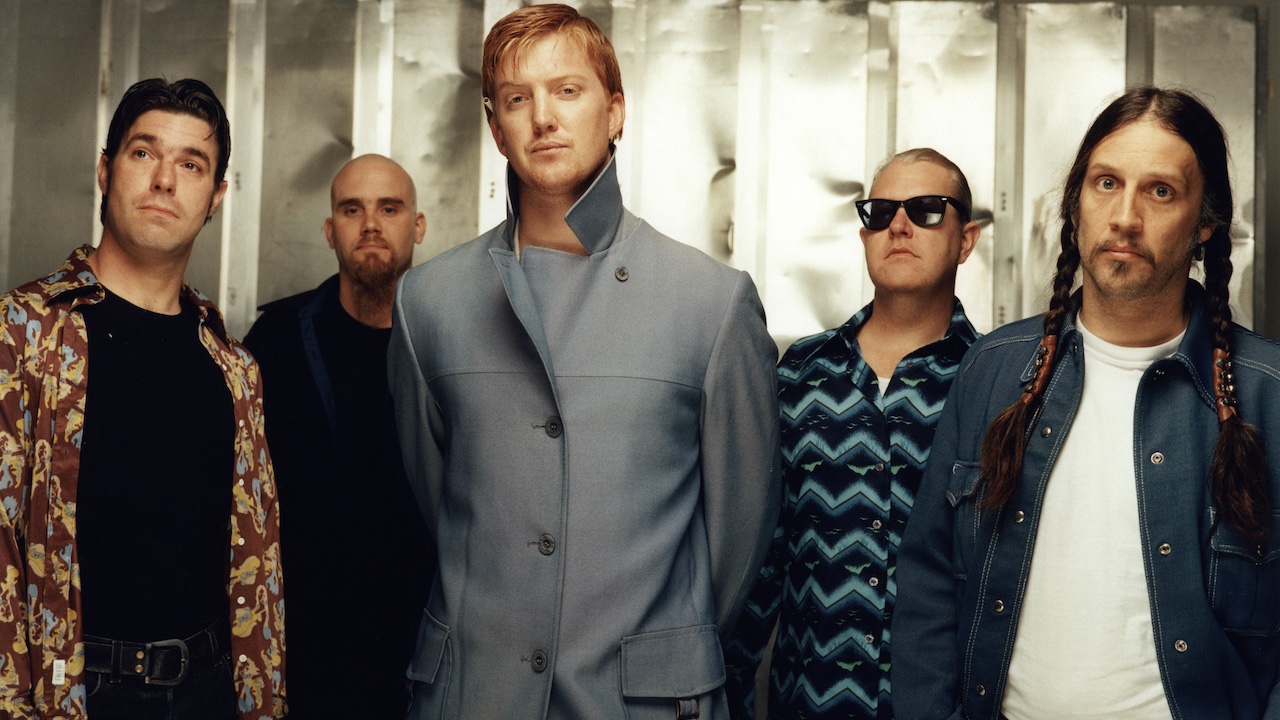



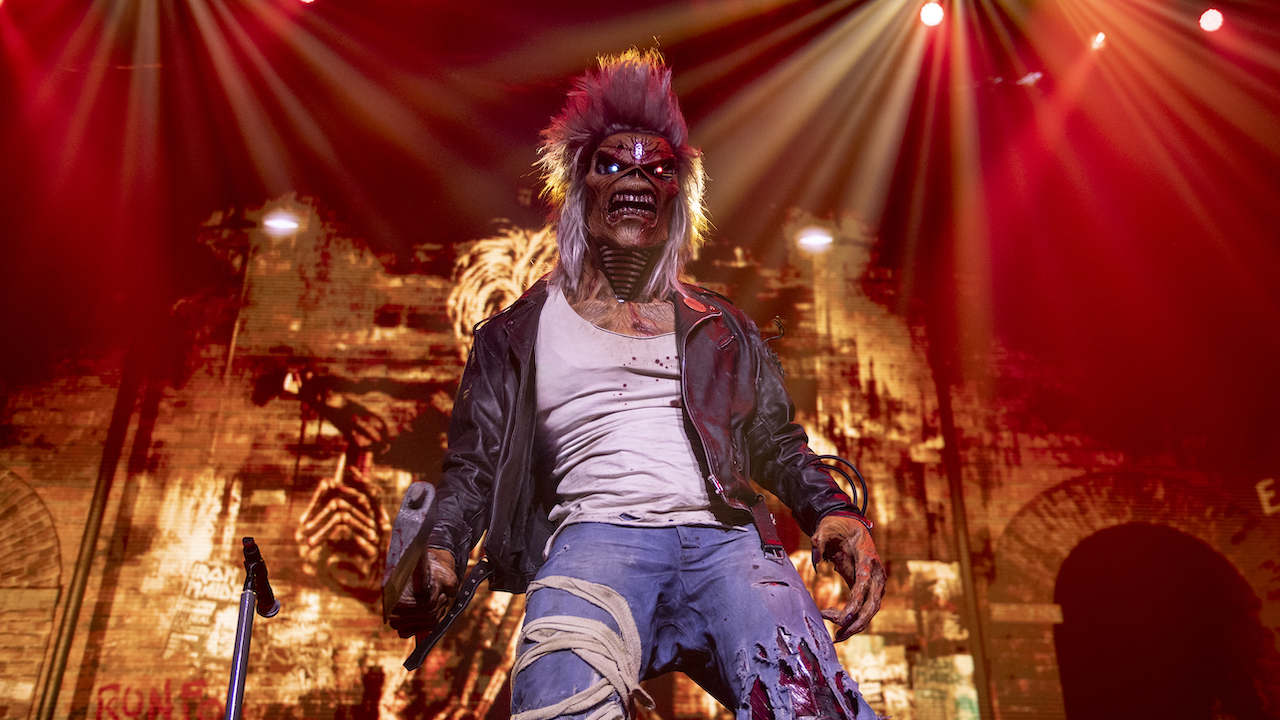
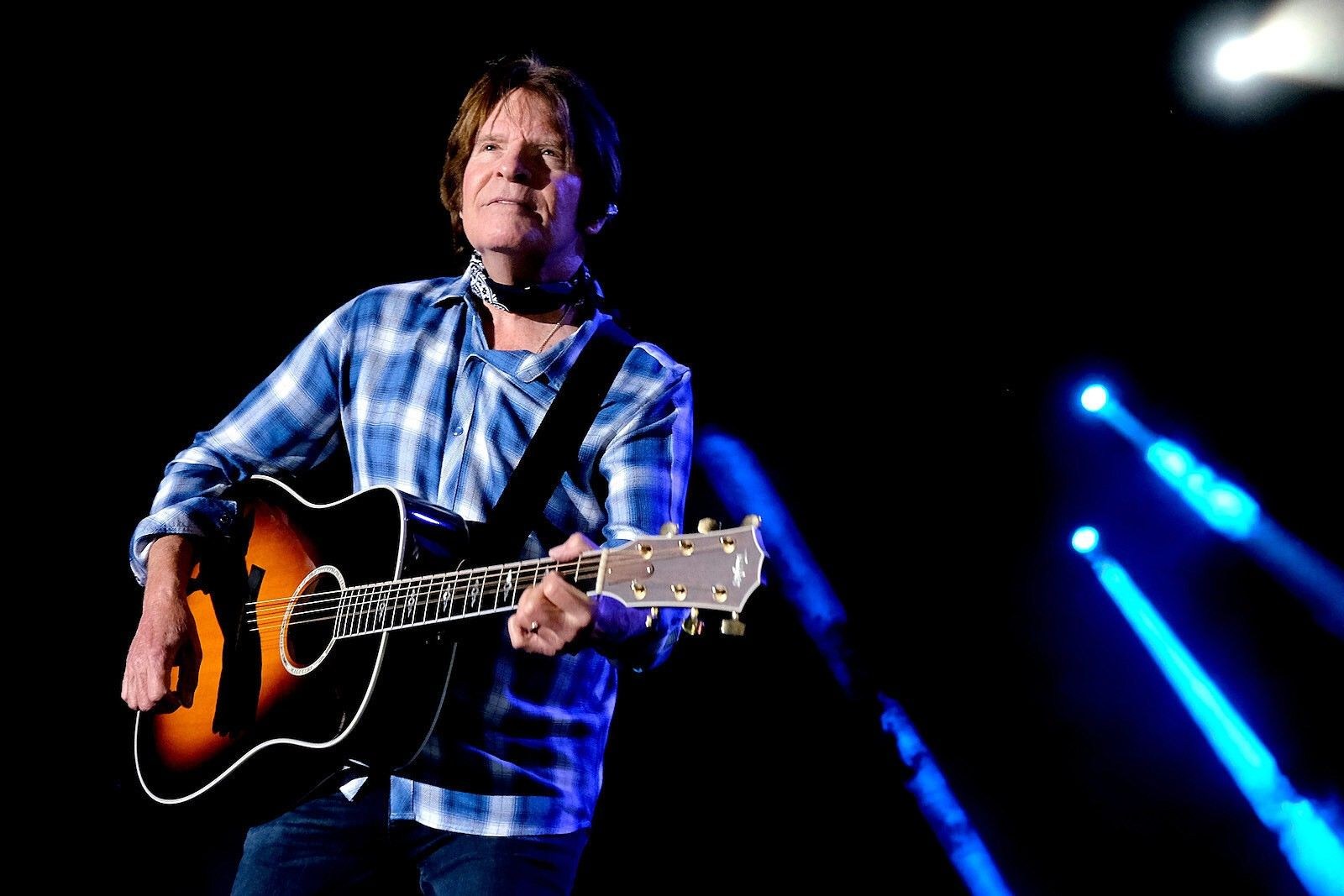
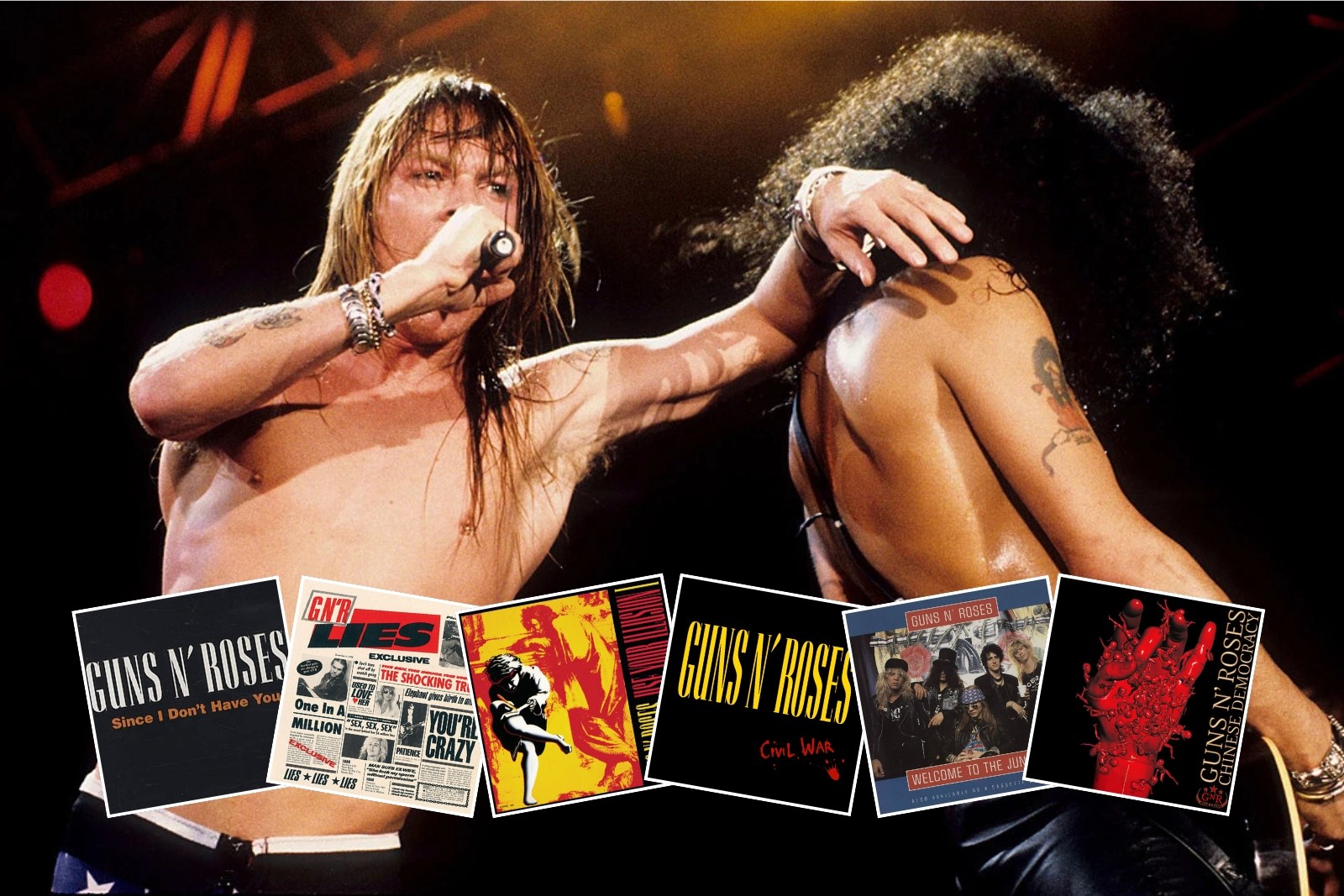


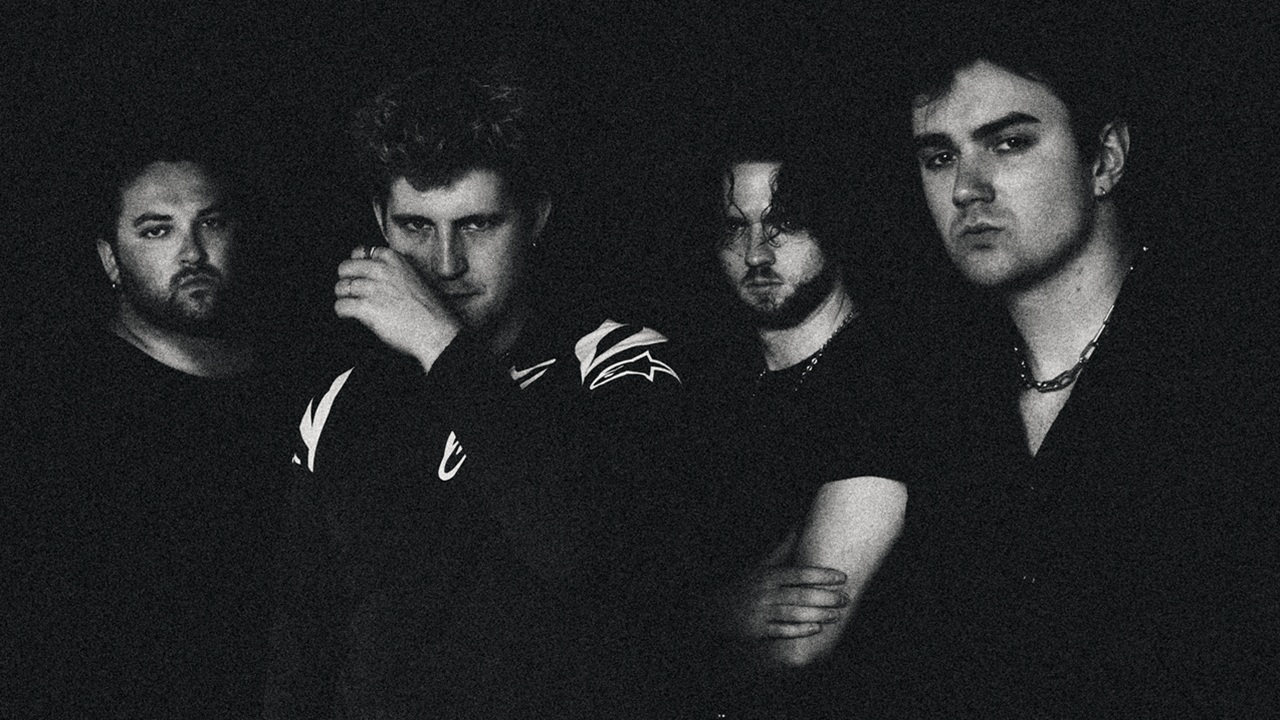
![Thornhill - Silver Swarm [Official Music Video] - YouTube](https://img.youtube.com/vi/Kfj5YXnUXsI/maxresdefault.jpg)